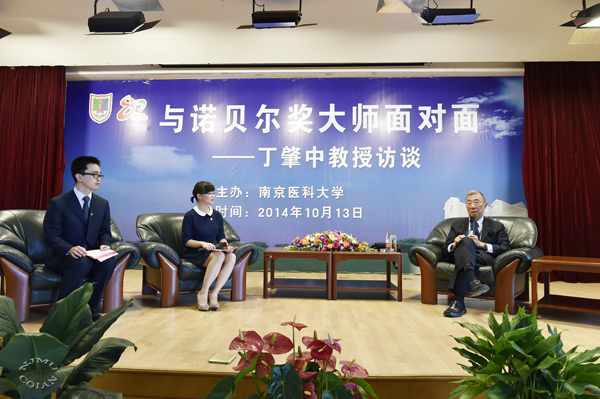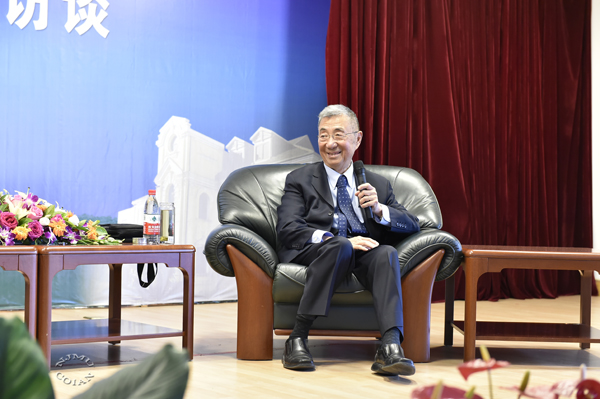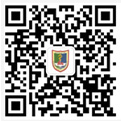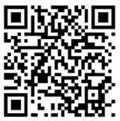In the morning of October 13th, 2014, on the occasion of the 80th anniversary of Nanjing Medical University, Professor Samuel Chao Chung Ting, a Nobel laureate in physics, was invited to have a face-to-face dialogue with faculty members and students in an auditorium on the fifth floor of the library in Wutai campus of NMU. University senior officials Chen Qi, Shen Hongbing, Zhang Zhufan, Wang Ruixin, Lu Xiang, Li Jianqing, and representatives of the faculty and students, numbering more than 300 people in total, participated in the interview, with a live stream video of the whole interview being broadcasted in Room 302 of the Xianzhi Building to accommodate the large audience. The interview was hosted by President Shen Hongbing.
During the interview, Professor Ting recalled the experience of winning the Nobel Prize in Physics. Before the 1970s, physicists all over the world believed that the three proposed quarks could explain all physical phenomena. But Professor Ting questioned it and designed a sophisticated experimental system to explore a fourth quark. The industry believed that this experiment was theoretically meaningless, and it was impossible to get experimental results. But Professor Ting firmly believed in the research he was embarking. After two years of experiments, he found a very strange particle, 'living a life longer than all the previously known particles by 10,000 years', and he named it 'J particle'. The research was published in November 1974, and was praised as 'the November revolution of physics, changing the concept of physics for everyone'.
“Natural science is an experimental science, and theory without experimental demonstration is pointless. Experiments can refute a theory, but it is impossible for a theory to refute the experiments. A new theory is created out of the wreckage of an old one invalidated by experiments, thus science will continue to progress.' Professor Ting believes that research needs strong faith, 'In scientific experiments, the authority does not mean anything. The most important thing is to choose the right research.' He humbly said that any person's ability is limited and we can only concentrate on one thing. And for him, this thing was to conduct physics experiments.
As the only one professor not involved in teaching activity in MIT, Professor Ting led his international research team focusing on research. He organized a weekly project seminar, and all the members regardless of position and qualification could report and exchange equally.
Professor Ting said the long-term adherence to physics research lied in his interest and expertise in physics. 'As for physics, I only needed to spend very little time to get a high score. I learned mechanical engineering in the first semester in my University, and in the second semester, I entered the Institute to study mathematics and physics following the instructor’s recommendation. It took 6 years from entering the university to getting a Ph.D. The University of Michigan gave me a lot of waiver of required courses. Because of the interest, I did not feel lonely or lost in this journey to explore the unknown'.
Professor Ting believes that the progress of science relies mainly on people's curiosity. 'Physics research found X-ray 100 years ago, and then it was widely used in the medical field. Later, quantum physics, nuclear physics, space physics researches also brought welfare to humanity. So, with achievements from physics research, science and technology, including medicine, continue to make progress. Human beings can never move forward without scientific research.”
At the end of the interview, Professor Ting noted to students of NMU that a person came into the world only once, and he/she should work according to his/her own interest.
Reported by: Publicity Department
Translated by: Miao Yudong.
Edited by: Zhang Donghui







